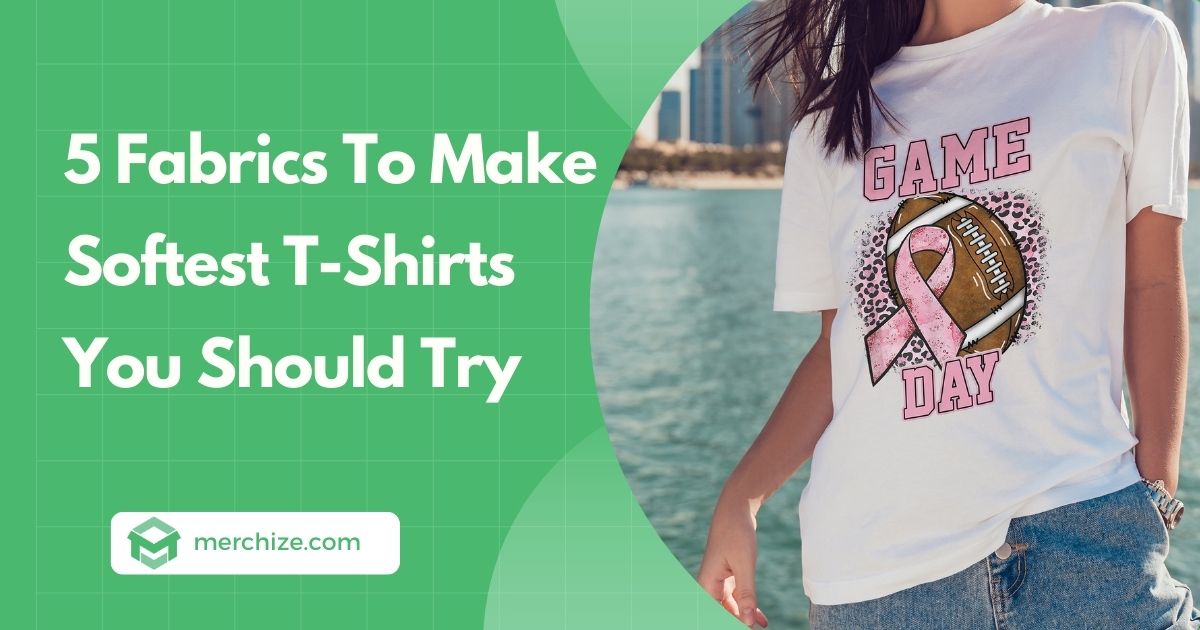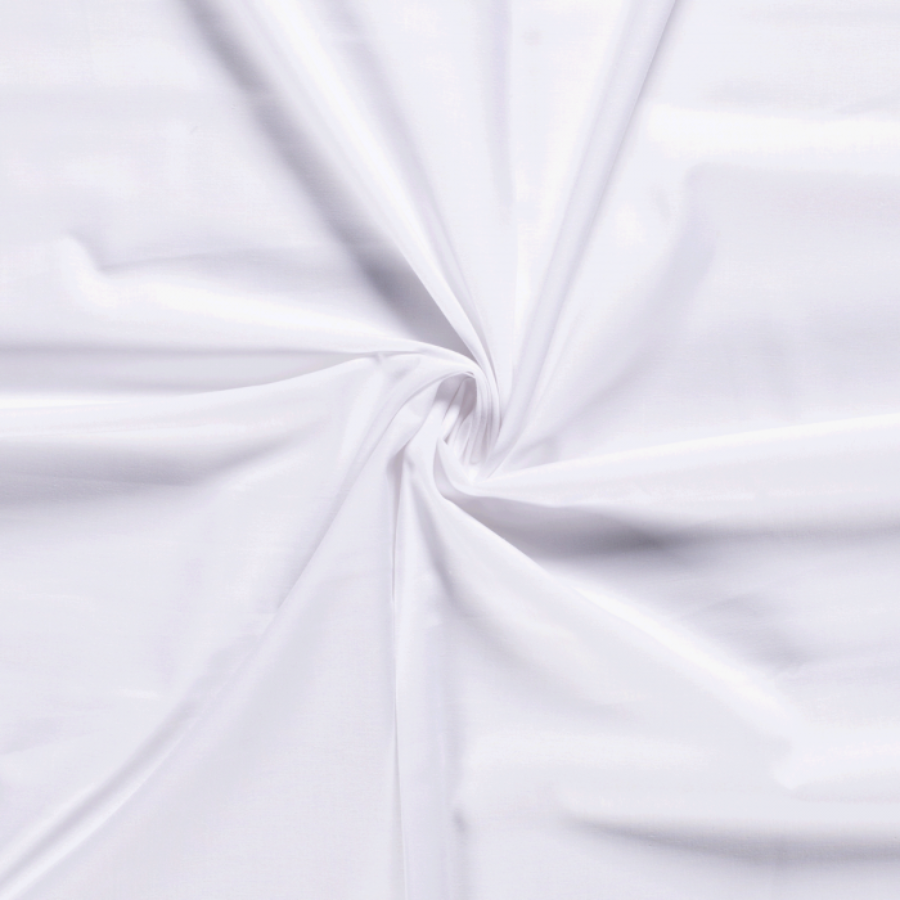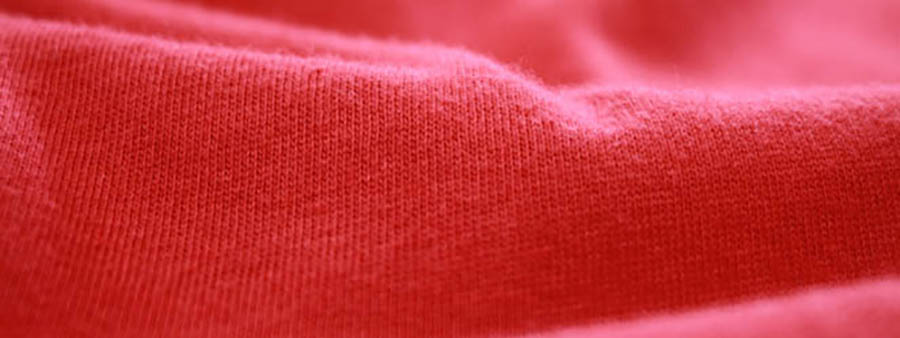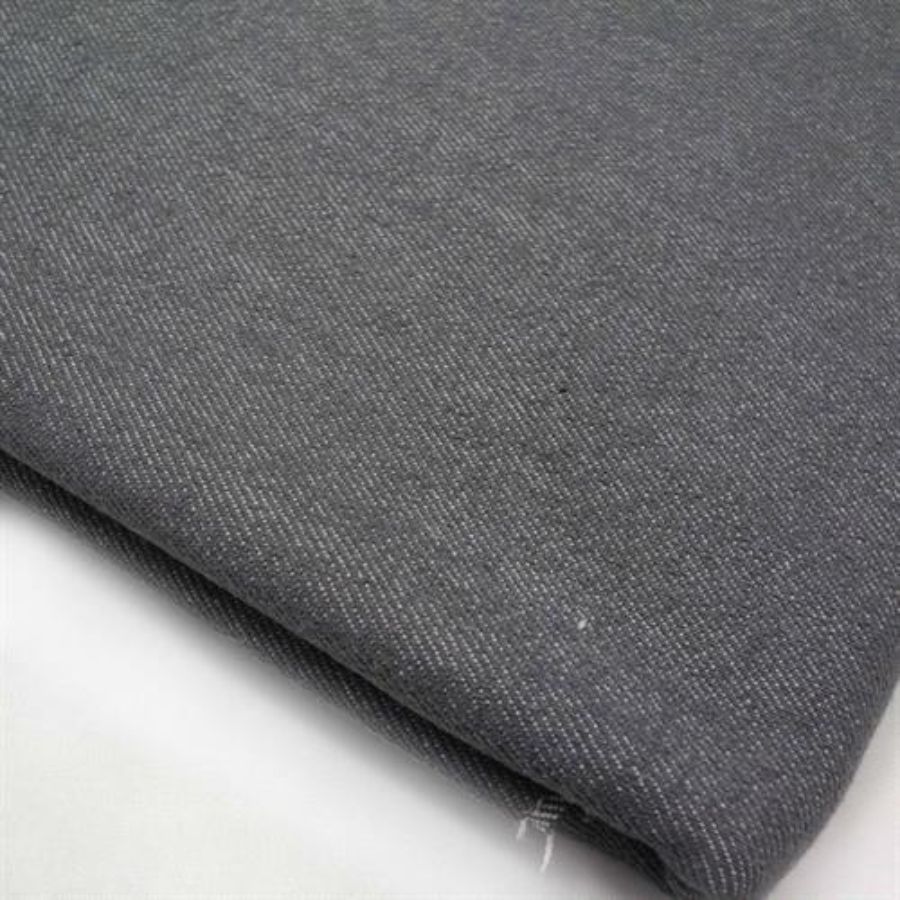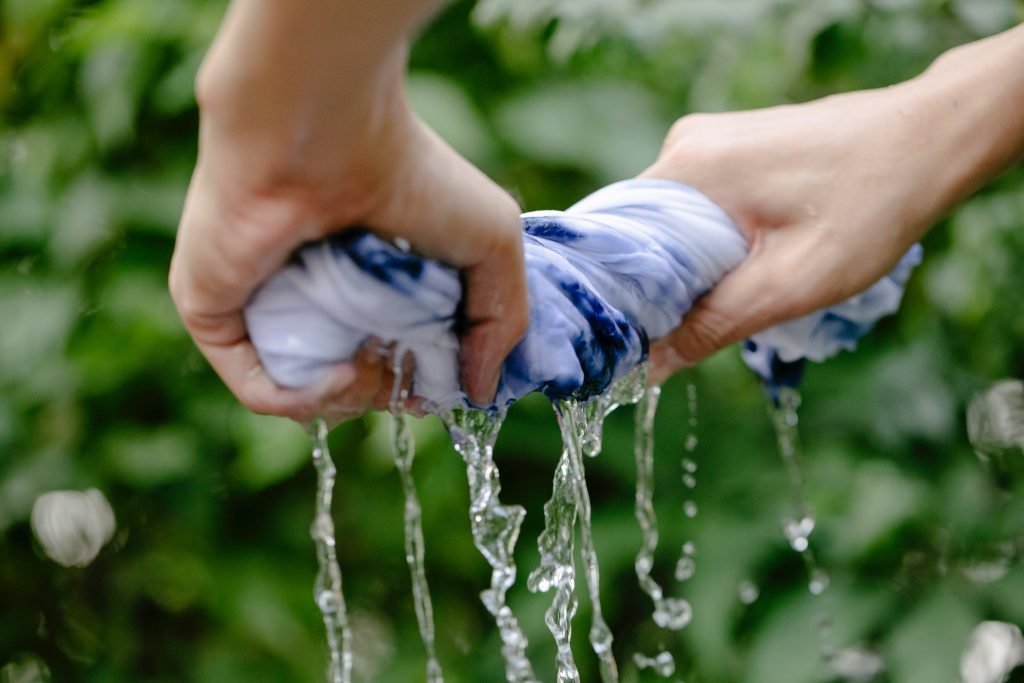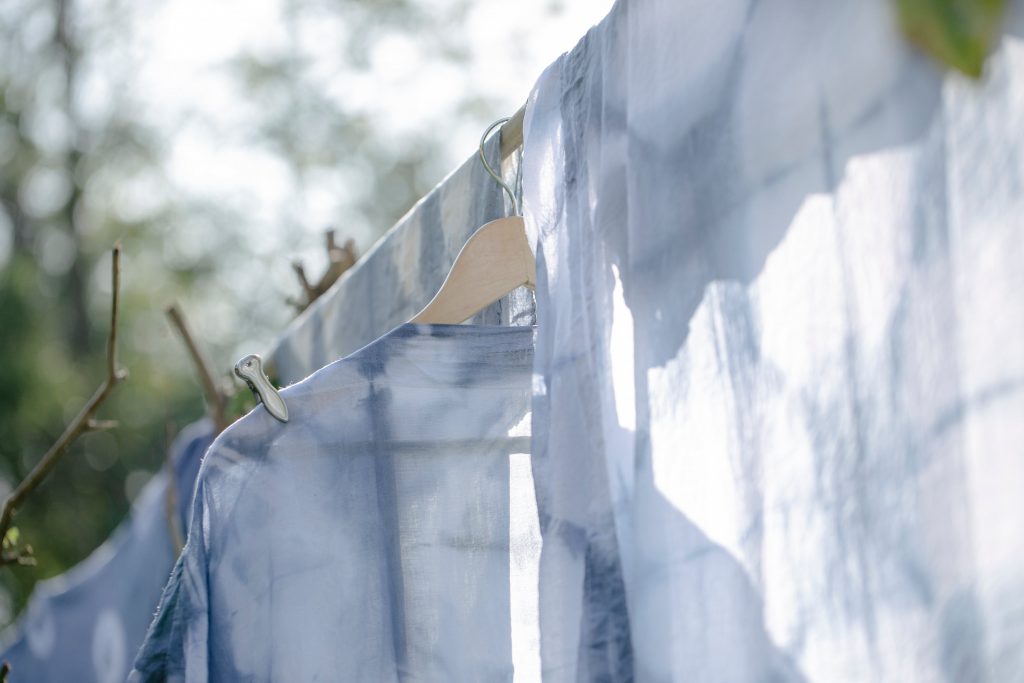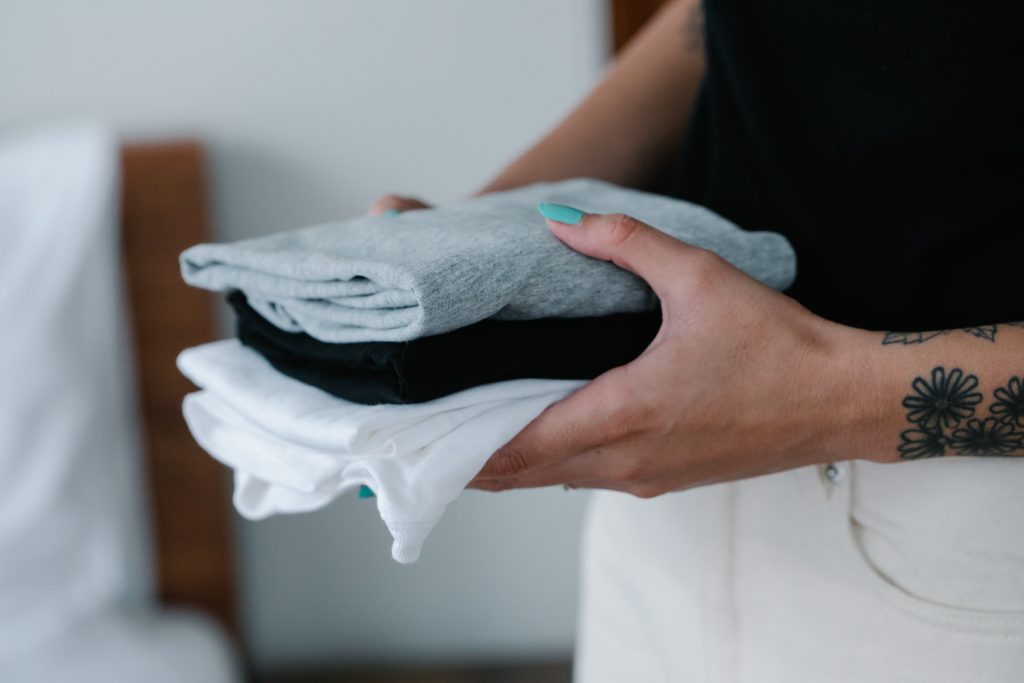Contents
When it comes to selling T-shirts online, selecting the right fabric is a key factor in your business success. Fabric that feels itchy or rough on the skin may not be a customer’s top pick and can lead to negative reviews for your shop. On the other hand, a soft, comfortable T-shirt can increase customer satisfaction and sales. But what are the fabrics that make the softest t-shirts?
This comprehensive guide will bring you a detailed view of the best t-shirt fabrics for your print-on-demand business and some practical care tips that you can include in your product description.
Let’s read on to find out!
What makes fabric soft?
The softest t-shirts are often crafted from materials like premium cotton, tri-blends, or organic fabrics, designed to offer maximum comfort. Whether you’re looking for super soft t-shirts for everyday wear or soft t-shirts that hold up well for custom printing, understanding what makes a fabric soft will help you pick the best sort tee shirts for your needs.
1. Sort tee shirt material/fiber
The softness of a fabric starts at the very root—its fibers. Natural fibers like cotton, bamboo, or silk are well-known for their softness. These materials tend to have fine, smooth fibers that feel gentle against your skin. For instance, Pima or Supima cotton, with its longer, silkier fibers, feels far softer than standard cotton.
On the flip side, synthetic fibers like polyester can be hit or miss. Untreated, they might feel a little stiff, but with the right brushing or finishing techniques, they can mimic the softness of natural fibers. Blends like cotton-polyester combine the best of both worlds: softness with a touch of durability.
2. Fabric Construction
How the fabric is pieced together matters just as much as what it’s made of. Loosely knit or woven fabrics tend to feel softer than their tightly constructed cousins.
- Knitted Fabrics: Think of your favorite jersey T-shirt or that cozy knit blanket. Their stretchy, breathable construction feels softer and more flexible.
- Woven Fabrics: Denim, for example, has a tighter weave, making it sturdier but less soft to the touch.
This is what makes cuddling up in a plush knitted sweater feel different from slipping on structured jeans. One says, “relax,” the other says, “let’s get to work.”
3. Yarn Properties
Softness doesn’t stop at the fibers and how they’re threaded—it’s also about how they’re spun into yarn. Thinner, finer yarns with minimal twisting create a softer fabric.
- Thread Count: More threads per inch generally mean smoother, softer fabric surfaces.
- Yarn Thickness: A thin, delicate yarn feels like a strand of silk, while thicker yarns resemble the texture of a rope.
4. Fabric Finishes
Here’s where fabric gets its finishing touch. Treatments can transform an otherwise ordinary textile into something you’d want to wrap yourself in.
- Brushing: This technique raises tiny fibers on the surface, creating a fuzzy, soft texture—think of flannel.
- Enzyme Washing: Rough fibers are smoothed out, leaving a silkier finish behind.
In a way, these treatments are like giving the fabric a spa day—a little TLC that results in a dreamy, soft feel.
How is fabric softness measured?
Softness might feel subjective—like a gut reaction—but there’s both art and science behind it. Whether you’re trusting your fingers or relying on machines, here’s how softness gets its moment in the spotlight.
The Feel Test: A Hands-On Approach
You don’t need a lab coat for this one. Testing softness can be as simple as touch, drape, and stretch.
- Touch: Gently rub the fabric between your fingers. Soft fabrics feel smooth, like running your hand over a calm lake, while rougher ones might remind you of sandpaper or a scratchy wool sweater.
- Drape: Hold the fabric up and let it hang. Does it flow like a silk curtain, or stand stiff like cardboard? Softer fabrics tend to fall fluidly, almost hugging the air.
- Stretch: Pull the fabric slightly and release it. Does it stretch and snap back easily, like a yoga band, or resist with a stiff pull? A smooth stretch often signals softness.
Next time you’re in a store, try these tests. Wouldn’t you trust your fingers over a sales pitch?
Scientific Softness: Numbers Don’t Lie
For those who prefer precision, machines step in where hands leave off. Let’s peek at the tools used to quantify softness.
- Bending Test: How easily does the fabric fold or flop? Imagine draping it over your hand—if it droops effortlessly, it’s probably soft. Machines measure how much force it takes to bend the fabric, and the less force required, the softer it is.
- Compression Test: This one’s all about squishiness. Picture squeezing a marshmallow—it gives easily, right? A soft fabric behaves similarly. Scientists press on the fabric and measure how much it compresses under pressure. The more it gives, the softer it feels.
- Surface Roughness Test: Run your fingers over the fabric. Does it feel silky smooth or bumpy like a gravel road? Instruments mimic this by dragging a sensor across the fabric’s surface to detect tiny imperfections. Smoother fabrics score higher on the softness scale.
- Friction Test: Ever rub two pieces of silk together? They glide. Compare that to rubbing sandpaper—it resists. Machines measure the force needed to move fabric against itself or another surface. Less friction equals more softness.
Softness is part sensation, part science. Whether you’re trusting your fingertips or relying on precision instruments, the key question remains: does the fabric feel as inviting as it looks?
Comparison between fabrics to make the softest t-shirt
We understand that selecting the right fabric to make soft t-shirts can seem challenging, so we’ve consolidated a table overviewing different fabrics to help you navigate through the sea of options.
| Fabric | Description | Pros | Cons |
| Cotton | A soft, breathable, and comfortable fabric that is also durable and affordable. | Cost-effective, absorbent, durable, comfortable | Wrinkles easily, shrinks after washing, fades over time |
| Pima cotton | A higher-quality cotton with a longer fiber, resulting in a smoother, softer, and more durable fabric. | Smooth, soft, durable, tear-resistant, wrinkle-resistant, fade-resistant | More expensive than other cotton types |
| Supima cotton | A premium variety of Pima cotton with even longer fibers, making it even softer and silkier. | Exceptionally soft, silky, durable, tear-resistant, wrinkle-resistant, fade-resistant | Most expensive cotton type |
| Egyptian cotton | A premium cotton known for its silky smooth texture and delicate touch. | Soft, comfortable, drapes well | More expensive than other cotton types |
| Ring-spun cotton | A type of cotton that is spun into thinner, finer, and stronger yarns, resulting in a softer and more durable fabric. | Softer, more durable, often used in premium t-shirts | More expensive than regular cotton |
| Combed cotton | Ring-spun cotton that has been combed to remove impurities and shorten fibers, resulting in a smoother and less likely to fall apart fabric. | Smoother, less likely to fall apart | More expensive than ring-spun cotton |
| CVC | A blended fabric of cotton and polyester that combines comfort and performance. | Soft, wrinkle-resistant, moisture-wicking | Less breathable, more prone to static cling |
| Bamboo | A super smooth, breathable fabric that is even softer than Egyptian cotton. | Soft, breathable, moisture-absorbing, antibacterial, UV-resistant | More expensive than cotton |
| Modal | An artificial fiber made from the inner bark of beech trees that is incredibly soft and has a smooth surface. | Incredibly soft, smooth surface, lightweight, flexible | More expensive than cotton |
| Tri-blend | A blend of cotton, polyester, and rayon that is comfortable, lightweight, and has a retro style. | Comfortable, lightweight, retro style | Less breathable |
Cotton
Cotton is a go-to option for T-shirt fabrics because it is cost-effective, absorbent, durable, and comfortable. However, there are many types of cotton fabrics available, causing potential confusion for print-on-demand sellers to choose from. In this section, we’ll break down the most common types of cotton you may encounter, so that you can decide which is most suitable for your business.
Pima cotton
This is the highest-quality and also one of the most expensive types of cotton. Pima cotton has a longer fiber than other types of cotton that allows a higher thread count, making it smooth, soft, and durable. One more great thing about pima cotton is its tearing, wrinkling, and fading resistance.
Supima cotton
Supima cotton is a more premium variety of Pima cotton that has longer fibers, making it even softer and silkier. On top of that, this type of cotton is grown only in the United States and must meet strict quality standards to earn the Supima designation. This ensures that Supima cotton consistently delivers exceptional softness, strength, and durability. As a result, Supima cotton tends to be the most expensive one in the list.
Egyptian cotton
Egyptian cotton is a premium version of cotton that is known for its silky smooth texture and delicate touch. Egyptian cotton t-shirts are very soft and comfortable, and they also drape well over the body.
Ring-spun cotton
Ring-spun cotton is a type of cotton that is spun into thinner, finer, stronger yarns. This results in a softer, more durable fabric than regular cotton, and of course, more expensive. Ring-spun cotton is often used in premium t-shirts.
Combed cotton
The process of making combed cotton requires a combing process to ring-spun cotton. By removing impurities and shortening the fibers, the fabric becomes smoother and less likely to fall apart. As a result, this additional processing increases the cost, making combed cotton more expensive than ring-spun cotton.
What are the pros and cons of 100% cotton fabric?
Pros
- Breathability: Allows air to pass through the fabric, keeping you cool and preventing overheating. Perfect for hot climates or active lifestyles.
- Hypoallergenic: Pure cotton is less likely to irritate sensitive skin since it’s free of synthetic fibers. Great for babies, people with allergies, or anyone prone to skin issues.
- Absorbency: Cotton can absorb moisture well, keeping you dry and comfortable. Useful for casual and sportswear.
- Versatility: Cotton can be woven or knit into various textures, weights, and styles (e.g., lightweight for summer or heavyweight for winter). Suitable for a range of T-shirt styles and purposes.
- Easy to Dye: Cotton holds dyes well, resulting in vibrant, long-lasting colors. Offers a wide range of design possibilities.
- Biodegradable and Eco-Friendly: 100% cotton is a natural fiber and decomposes over time. A sustainable choice when sourced ethically.
Cons
- Prone to Wrinkling: Cotton tends to wrinkle easily. Iron or steam T-shirts to maintain a smooth appearance.
- Shrinkage Potential: 100% cotton fabric can shrink after washing if not pre-shrunk or treated. Choose pre-shrunk cotton or wash according to care instructions.
- Stretch Limitations: Cotton lacks natural stretch compared to blended fabrics. Ideal for structured T-shirts but not for tight-fitting or activewear unless blended with elastane.
CVC – cotton and poly blends
Though 100% cotton shirts are available, they have certain drawbacks, such as their tendency to wrinkle easily, shrink after washing, and fade over time. On the other hand, polyester is also a popular fabric to make T-shirts, but it can be less breathable and more prone to static cling than natural fibers.
The solution to this problem is CVC, a blended fabric of cotton and polyester that combines comfort and performance. The common ratio is 60% cotton and 40% polyester, or 50% cotton and 50% polyester, providing the benefits of both textiles while having none of the drawbacks. CVC shirts are as soft as cotton, yet have poly’s toughness, wrinkle resistance, and moisture-wicking abilities.
Modal
If you haven’t heard of Modal, you are not alone. Though being a relative newcomer to the apparel industry, it’s already the talk of the town. Modal is an artificial fiber that is made from the inner bark of beech trees and is even more expensive than cotton due to its sophisticated production process, using fewer chemicals and energy than other fabric options.
It may sound strange that a fabric made from wood is famous for its softness, but it is. This fabric is incredibly soft and has a smooth surface that is perfect for screen printing. Modal is also used in underwear and sleepwear for its lightweight and flexible character.
Tri-blend
Debuting in the early 2000s, tri-blend has taken the garment business by storm for its comfort, lightweight, and retro style. Tri-blend is a type of blend fabric that combines cotton, polyester, and rayon. The composition is usually 50% cotton – 25% polyester – 25% rayon. Sometimes rayon is replaced with modal for extra softness.
Not also famous for its comfort, tri-blends are a go-to option for screen printing, direct-to-garment printing, and discharge printing shirts. You can learn more about the pros and cons, and frequently asked questions about tri-blends here.
What are the pros and cons of trib-blend fabric?
Pros:
- Softness and Comfort: Rayon adds an incredibly soft and luxurious feel, making tri-blend shirts some of the softest on the market. The fabric is lightweight and drapes well, offering exceptional comfort.
- Durability: Polyester in the blend increases the shirt’s strength, reducing wear and tear over time. It also resists shrinking better than 100% cotton.
- Stretch and Flexibility: Rayon and polyester give tri-blend shirts a natural stretch, providing a flattering fit and flexibility for active use.
- Breathability and Moisture-Wicking: Cotton ensures breathability, while polyester wicks moisture away, keeping the wearer cool and dry.
- Vintage Look and Feel: Tri-blend fabric often has a heathered or slightly textured appearance, giving it a trendy, vintage vibe.
- Wrinkle Resistance: Polyester and rayon reduce wrinkling, making the shirts low-maintenance for daily wear.
Cons
Despite its advantages, tri-blend fabric has some downsides:
- Higher Cost: Tri-blend shirts are generally more expensive than 100% cotton or cotton-polyester blends due to their premium materials and production process.
- Less Eco-Friendly: Polyester and rayon are synthetic fibers, with polyester being derived from petroleum and rayon involving chemical processing, making tri-blends less sustainable compared to 100% cotton.
- Lower Durability of Rayon: Rayon, while soft, is less durable and can weaken the overall longevity of the shirt if not cared for properly.
- Heat Sensitivity: The rayon and polyester components can be damaged by high heat, so care instructions often recommend low-temperature washing and drying.
- Potential Pilling: The polyester component is prone to pilling over time, especially with frequent wear and washing.
- Limited Absorption: Compared to 100% cotton, tri-blend shirts are less absorbent, which might be a drawback for those seeking high moisture retention.
3 Softest T-shirts
When it comes to soft T-shirts, every fabric tells its own story. Some offer plush, cozy vibes, while others boast a lightweight, breezy feel. Let’s explore three standout options that cater to different needs and preferences.
Unisex Garment-Dyed Heavyweight T-Shirt Comfort Colors 1717
If T-shirts were a warm hug, this would be the heavyweight champion of coziness.
- Fabric Composition: Crafted entirely from 100% ring-spun cotton, it boasts an exceptionally soft and sturdy texture.
- Fabric Weight: At 6.1 oz/yd² (206.8 g/m²), it’s a beefy option that feels substantial without being overly heavy.
- Garment-Dyed Magic: Each shirt undergoes a garment-dyeing process, giving it rich, lived-in hues and an irresistibly broken-in feel.
- Durability: Pre-shrunk fabric ensures your shirt stays true to size, wash after wash.
Perfect for those who love a classic, rugged T-shirt with a vintage edge, this Comfort Colors piece is an all-around charmer. Does your wardrobe have room for such timeless appeal?
Unisex T-Shirt Bella + Canvas 3001
The Bella + Canvas 3001 is like the Swiss Army knife of T-shirts—lightweight, adaptable, and endlessly versatile.
- Fabric Mix:
- Solid Colors: Made from 100% Airlume combed and ring-spun cotton, the gold standard for softness.
- Heather and Ash Variations: A touch of polyester (up to 48%) enhances stretch and durability.
- Fabric Weight: At 4.2 oz/yd² (142 g/m²), it’s light as a feather but still strong enough to handle wear and tear.
- Fine Yarn: The 30 singles yarn count results in a smooth, polished surface, making it an ideal canvas for custom prints.
- Pre-Shrunk Fabric: No surprises post-laundry—your T-shirt will retain its fit.
This staple T-shirt is for those who appreciate soft, breathable fabrics that fit like a dream. Need a go-to shirt for everything from lounging to running errands? This one’s got you covered.
Adult T-Shirt Gildan 5000
Gildan 5000 delivers straightforward comfort with an innovative twist.
- Fabric Composition: Crafted from 100% U.S. cotton for solid colors, while blends incorporate polyester for added durability.
- Fabric Weight: With a weight of 5.3 oz/yd², it strikes a balance between lightweight and robust.
- Enhanced Printability: Thanks to advanced cotton technology, this shirt offers a smooth surface perfect for vibrant designs.
- Comfort Factor: Softness you can feel, backed by remastered production techniques for an upgraded wearing experience.
Looking for reliable quality at a friendly price point? Gildan 5000 is a workhorse T-shirt that doesn’t compromise on comfort.
Whether you’re drawn to the rugged charm of Comfort Colors, the lightweight versatility of Bella + Canvas, or the dependable innovation of Gildan, each T-shirt offers its own flavor of softness. Which one speaks your language of comfort?
Care instructions to keep t-shirts soft
Now that you know the fabrics to make the softest t-shirts and may have decided which one to sell, you can consider including these helpful tips for your customers to keep their favorite t-shirts longer:
Washing instructions
- Wash in cold water. Hot water can shrink and damage the fibers of t-shirts, making them feel rougher and less soft.
- Use a mild detergent. Harsh detergents can strip away the natural oils that keep T-shirts soft. Opt for a mild detergent specifically designed for delicate fabrics.
- Wash inside out. This will help protect the design and color of t-shirts, and it will also reduce friction that can cause pilling.
- Avoid overloading the washing machine. Overcrowding can cause t-shirts to rub against each other, which can lead to pilling and loss of softness.
- Remove stains promptly. Stains can set in and become harder to remove, and they can also damage the fibers of t-shirts.
Drying instructions
- Reshape your t-shirts while they are still wet to prevent wrinkles and set the shape of your t-shirts.
- Lay your t-shirts flat to dry if possible. Hanging your T-shirts can cause them to stretch out of shape.
- Avoid drying under direct sunlight as the sunlight can cause the color faded and the fabric feels less soft.
- Air-dry whenever possible. The heat from a dryer can damage the fibers of t-shirts, making them feel stiff and scratchy. If you prefer to use a dryer, set the lowest heat possible.
Storage instructions
- Fold your t-shirts neatly to prevent wrinkles and keep your t-shirts looking their best.
- Store your t-shirts in a cool, dry place. Avoid storing them in damp or humid areas, as this can cause mildew.
- Don’t overcrowd your closet or drawer. It can cause your t-shirts to wrinkle and lose their shape.
- Use a cedar hanger or drawer liner. Cedar is a natural moth repellent, and it can also help to keep your t-shirts smelling fresh.
Besides, don’t forget to take a look at our guide on writing effective product descriptions to persuade potential customers to buy them.
Conclusion
The world of fabrics is vast, full of options, and ever-changing. As technology advances, so do t-shirt fabrics. It can be hard to keep up at first, but we hope that this comprehensive guide has brought you some helpful information to stay on top of the game.
Whether you search for fabrics for screen printing, embroidery, dye sublimation, or vinyl heat transfer, Merchize has you covered! We have all the blanks you need to create the highest quality, most durable, and softest t-shirts that make your customers smile, and your sales skyrocket.
Sign up for Merchize today to take your shirt business to new heights!
FAQs
1. What is the softest fabric for T-shirts?
Tri-blend and Modal are generally considered the softest, followed closely by Supima or combed ring-spun cotton.
2. Is tri-blend softer than 100% cotton?
Yes. Thanks to rayon or modal, tri-blend T-shirts feel lighter, smoother, and more flexible than most 100% cotton shirts.
3. Does polyester make T-shirts less soft?
Not necessarily. When blended with cotton (CVC), polyester can improve durability and retention of softness over time.
4. What fabric is best for DTG printing?
100% ring-spun cotton and cotton-rich blends provide the best ink absorption and color vibrancy.
5. Which fabric causes the fewest customer complaints?
CVC and tri-blend fabrics tend to shrink less, wrinkle less, and maintain softness longer—ideal for POD businesses.
6. Are soft T-shirts harder to care for?
Some premium fabrics (Modal, tri-blend) require gentle washing, but overall care is simple if washed cold and air-dried.
